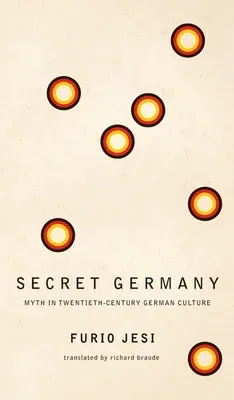Furio Jesi
(Author)Secret Germany: Myth in Twentieth-Century German CulturePaperback, 8 March 2023

Qty
1
Turbo
Ships in 2 - 3 days
Only 4 left
Free Delivery
Cash on Delivery
15 Days
Free Returns
Secure Checkout

Part of Series
Italian List
Print Length
296 pages
Language
English
Publisher
Seagull Books
Date Published
8 Mar 2023
ISBN-10
1803091940
ISBN-13
9781803091945
Description
Product Details
Author:
Book Format:
Paperback
Country of Origin:
US
Date Published:
8 March 2023
Dimensions:
22.86 x
15.24 x
3.05 cm
Genre:
Italy
ISBN-10:
1803091940
ISBN-13:
9781803091945
Language:
English
Pages:
296
Publisher:
Series: